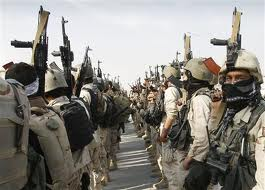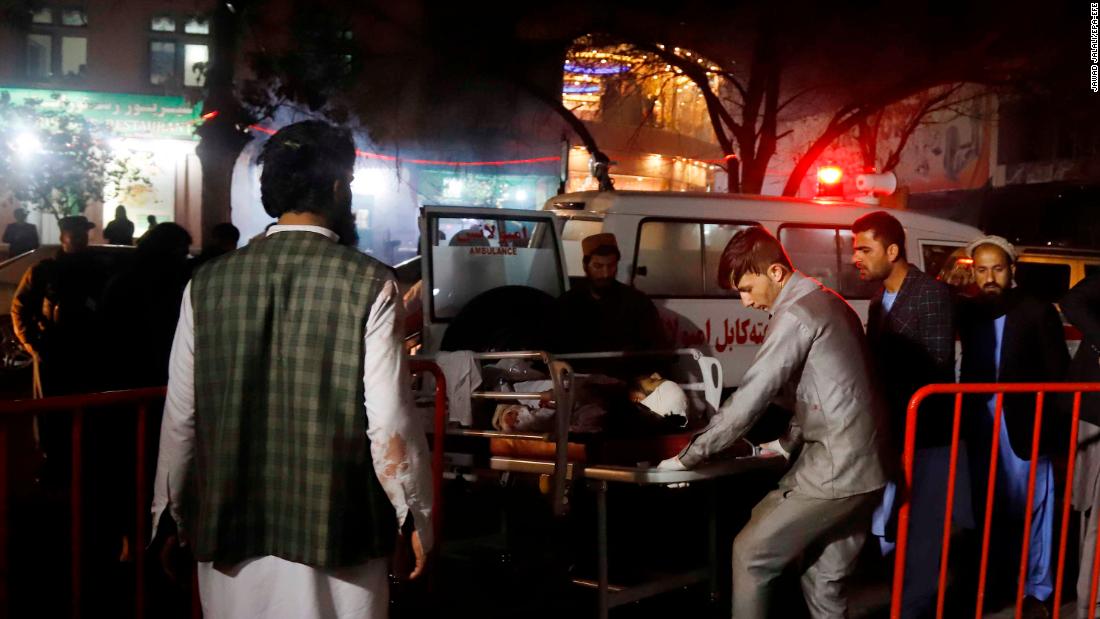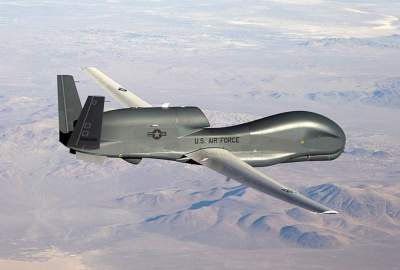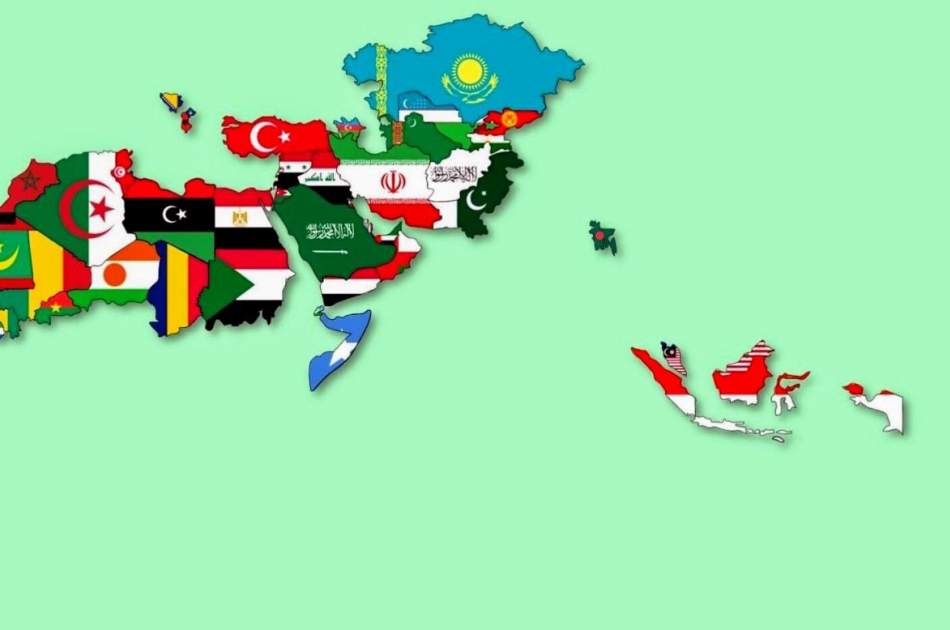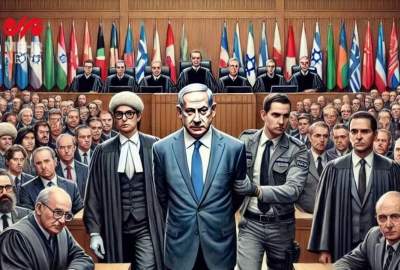A brazen, 18-hour attack allegedly carried out by Pakistan-based militants on targets in the Afghan capital, including the U.S. Embassy, could spark fresh tension between Washington and Islamabad just as they seemed to be patching up their vital but troubled relationship.
Publish dateMonday 16 April 2012 - 20:31
Story Code : 40052
Afghan Officials:
Kabul attack could spark US-Pakistan tension
The attack, which ended early Monday, will likely re-ignite anger in Washington over Pakistan's unwillingness to crack down on militants using its territory as a base to target neighboring Afghanistan. But the Obama administration must weigh the impact any public criticism of Pakistan may have on the country's cooperation with it in other areas, including getting supplies to troops in Afghanistan and negotiating peace with insurgents there AP reported.
The potential flashpoint comes days after Pakistan's parliament finally approved new guidelines for the country in its relationship with the U.S., a decision that Washington hopes will pave the way for the reopening of supply lines to NATO troops in Afghanistan.
Pakistan closed its border crossings to NATO supplies in November in retaliation for American airstrikes that accidentally killed 24 Pakistani soldiers. It has taken the government months to navigate the delicate path of resuscitating ties with the U.S., a difficult process in a country where anti-American sentiment is rampant.
Afghan officials on Monday said a gunman arrested in the attacks told authorities the simultaneous strikes in Kabul and three other cities were carried out by the Haqqani network, a militant group allegedly linked to Pakistan's spy agency. The attacks killed 11 people — eight members of the Afghan security forces and three civilians. Thirty-six insurgents were also killed.
The attacks were the most widespread in Kabul since an assault on the U.S. Embassy and NATO headquarters last September also blamed on the Haqqani network. U.S. officials accused Pakistan's Inter-Services Intelligence agency, or ISI, of helping with that attack, sparking outrage in Islamabad.
An ISI official said Monday that claims the Haqqani network was behind the latest attacks were "nothing but accusations."
"We have no idea who carried out these attacks," the official said, speaking on condition of anonymity because he was not authorized to talk to the media. "Whenever something happens, blame is always laid on our doorstep."
If the role of the Haqqani network is confirmed, it could place the Obama administration in a tricky position. It could face pressure from Congress and Republican presidential contender Mitt Romney to criticize Pakistan. But the U.S. wants Islamabad to reopen the NATO supply lines, and the country's help is seen as key to negotiating a peace agreement with the Taliban in Afghanistan.
The relationship is further complicated by Pakistani opposition to U.S. drone strikes targeting the Haqqani network and other militants along the border. Pakistan's parliament has demanded the attacks stop, but the U.S. has refused to comply.
Pakistan's army, which is considered the most powerful player in the country, has its own incentive to patch up ties: getting American military aid flowing to the country again. The U.S. has given Pakistan billions of dollars in military aid over the past decade, but flows have largely been frozen since the middle of last year after Osama bin Laden was found hiding in a Pakistani garrison town.
The U.S. has not found evidence that senior Pakistani officials knew the whereabouts of the slain al-Qaida chief, but his discovery fueled anger over Pakistan's alleged ties to Islamist militants.
Washington has long demanded that Pakistan target Taliban militants and their allies in the Haqqani network who are using Pakistani territory to launch cross-border attacks against American troops in Afghanistan.
Islamabad has refused, claiming its forces are stretched too thin fighting domestic militants seeking to topple the Pakistani government. But most analysts believe Pakistan is reluctant to crack down on groups with which it has long-standing ties because they could serve as key allies in Afghanistan after foreign troops withdraw, especially to counter the influence of its archenemy India.
The top U.S. military official at the time of last September's attack in Kabul, now-retired Adm. Mike Mullen, said the Haqqani network "acts as a veritable arm" of Pakistan's spy agency. The former chairman of the Joint Chiefs accused Pakistan of supporting and encouraging the attack, which killed 16 Afghans, as well as a massive truck bombing that also occurred in September at a military base in Wardak, Afghanistan, that wounded 77 American soldiers.
Islamabad angrily denied the accusations.
The Pakistani government's ties to the Haqqani network date back to the war against the Soviet Union in Afghanistan in the 1980s. Pakistani and U.S. spy agencies supported the group's founder, Jalaluddin Haqqani, in his fight against the Soviets. His group has since become the most feared militant faction battling U.S. troops in Afghanistan.
One of the militants arrested during the latest attacks in Kabul and three other cities has told authorities that the Haqqani network was behind the assaults, Afghan Interior Minister Besmillah Mohammadi said Monday.
Taliban spokesman Zabiullah Mujahid had previously claimed responsibility for the attacks, a common practice for assaults believed to be carried out by the Haqqani network. The groups are closely linked, and Haqqani militants pledge allegiance to Taliban chief Mullah Omar.
A spokesman for NATO forces in Afghanistan, Lt. Col. Jimmie Cummings, said they were still trying to determine who carried out the attacks.
"A Haqqani connection is a possibility, but still too early to determine for sure," Cummings said.
The potential flashpoint comes days after Pakistan's parliament finally approved new guidelines for the country in its relationship with the U.S., a decision that Washington hopes will pave the way for the reopening of supply lines to NATO troops in Afghanistan.
Pakistan closed its border crossings to NATO supplies in November in retaliation for American airstrikes that accidentally killed 24 Pakistani soldiers. It has taken the government months to navigate the delicate path of resuscitating ties with the U.S., a difficult process in a country where anti-American sentiment is rampant.
Afghan officials on Monday said a gunman arrested in the attacks told authorities the simultaneous strikes in Kabul and three other cities were carried out by the Haqqani network, a militant group allegedly linked to Pakistan's spy agency. The attacks killed 11 people — eight members of the Afghan security forces and three civilians. Thirty-six insurgents were also killed.
The attacks were the most widespread in Kabul since an assault on the U.S. Embassy and NATO headquarters last September also blamed on the Haqqani network. U.S. officials accused Pakistan's Inter-Services Intelligence agency, or ISI, of helping with that attack, sparking outrage in Islamabad.
An ISI official said Monday that claims the Haqqani network was behind the latest attacks were "nothing but accusations."
"We have no idea who carried out these attacks," the official said, speaking on condition of anonymity because he was not authorized to talk to the media. "Whenever something happens, blame is always laid on our doorstep."
If the role of the Haqqani network is confirmed, it could place the Obama administration in a tricky position. It could face pressure from Congress and Republican presidential contender Mitt Romney to criticize Pakistan. But the U.S. wants Islamabad to reopen the NATO supply lines, and the country's help is seen as key to negotiating a peace agreement with the Taliban in Afghanistan.
The relationship is further complicated by Pakistani opposition to U.S. drone strikes targeting the Haqqani network and other militants along the border. Pakistan's parliament has demanded the attacks stop, but the U.S. has refused to comply.
Pakistan's army, which is considered the most powerful player in the country, has its own incentive to patch up ties: getting American military aid flowing to the country again. The U.S. has given Pakistan billions of dollars in military aid over the past decade, but flows have largely been frozen since the middle of last year after Osama bin Laden was found hiding in a Pakistani garrison town.
The U.S. has not found evidence that senior Pakistani officials knew the whereabouts of the slain al-Qaida chief, but his discovery fueled anger over Pakistan's alleged ties to Islamist militants.
Washington has long demanded that Pakistan target Taliban militants and their allies in the Haqqani network who are using Pakistani territory to launch cross-border attacks against American troops in Afghanistan.
Islamabad has refused, claiming its forces are stretched too thin fighting domestic militants seeking to topple the Pakistani government. But most analysts believe Pakistan is reluctant to crack down on groups with which it has long-standing ties because they could serve as key allies in Afghanistan after foreign troops withdraw, especially to counter the influence of its archenemy India.
The top U.S. military official at the time of last September's attack in Kabul, now-retired Adm. Mike Mullen, said the Haqqani network "acts as a veritable arm" of Pakistan's spy agency. The former chairman of the Joint Chiefs accused Pakistan of supporting and encouraging the attack, which killed 16 Afghans, as well as a massive truck bombing that also occurred in September at a military base in Wardak, Afghanistan, that wounded 77 American soldiers.
Islamabad angrily denied the accusations.
The Pakistani government's ties to the Haqqani network date back to the war against the Soviet Union in Afghanistan in the 1980s. Pakistani and U.S. spy agencies supported the group's founder, Jalaluddin Haqqani, in his fight against the Soviets. His group has since become the most feared militant faction battling U.S. troops in Afghanistan.
One of the militants arrested during the latest attacks in Kabul and three other cities has told authorities that the Haqqani network was behind the assaults, Afghan Interior Minister Besmillah Mohammadi said Monday.
Taliban spokesman Zabiullah Mujahid had previously claimed responsibility for the attacks, a common practice for assaults believed to be carried out by the Haqqani network. The groups are closely linked, and Haqqani militants pledge allegiance to Taliban chief Mullah Omar.
A spokesman for NATO forces in Afghanistan, Lt. Col. Jimmie Cummings, said they were still trying to determine who carried out the attacks.
"A Haqqani connection is a possibility, but still too early to determine for sure," Cummings said.
Source : Afghan Voice Agency (AVA), International Service
avapress.net/vdccixq0.2bqxp8y-a2.html
Top hits
